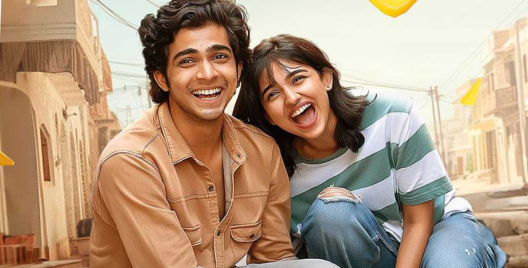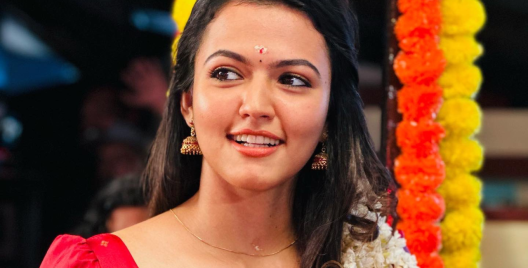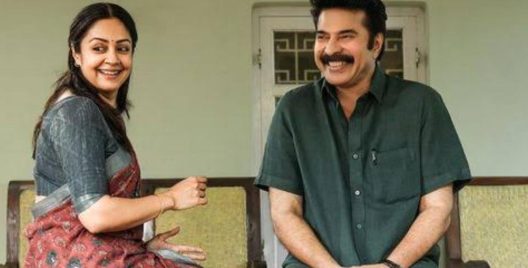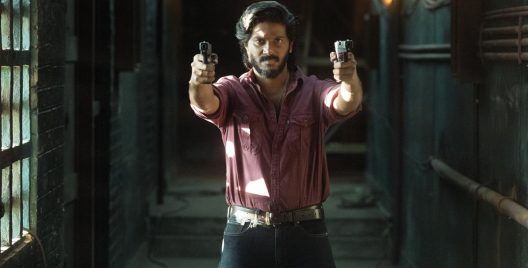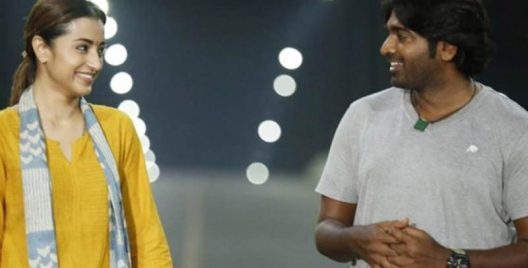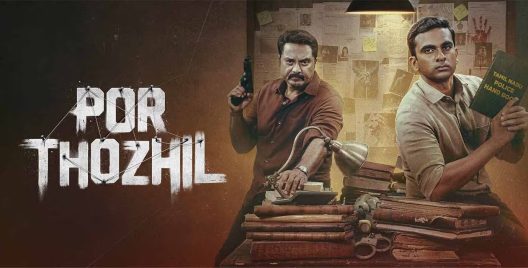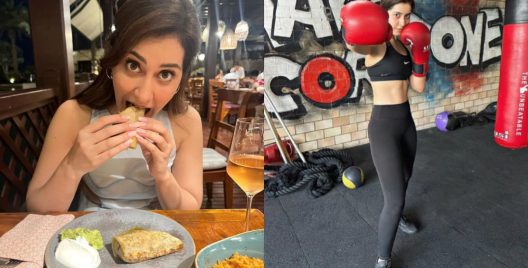Just like how the Tamil Film industry has a separate fan base, the Tamil Music industry has a huge fan following. Every music director, singer, lyricist has a separate fan base and almost an army of fans exist for every single one of them. As Tamilians, we are proud of most of our music, especially those composed by great composers and sung by great singers of the industry. But, many times we get so engrossed in these songs, that we forget to notice the intention or idea behind the song.
There are so many Tamil film and non-film songs today that have gone viral and that are on repeat in our playlist but have sexist and stereotyping lyrics in them. There are also many songs that are quite objectifying and often disgusting in their description. Some songs of course have lyrics where the man is trying to dictate terms or mansplain something to the woman. The worst part is that most of these songs are highly celebrated and some have even won awards.
Super Celebrated songs with super flawed lyrics:
There are some songs that are celebrated so much that even today they’re considered as one of the iconic ones. The irony is that even those songs have super problematic lyrics. Some of the lyrics of some iconic songs like Anbe Anbe Kollathey from Jeans and Kannum Kannum from Thiruda Thiruda are super objectifying and disrespectful to women.
In the song Anbe Anbe Kollathey, there is a line which goes like, “Pennae unathu mellidai paarthen adadaa brahman Kanjanadi. Sattrae nimirnden thalai suttri ponen aahaa avanae vallaladi.” As a listener, when you hear and understand this particular line you feel disgusted even though the song is set in such a nice tune. The lyrics literally refers to the Hero first criticising the creator and then appreciating him for the heroine’s body parts. This kind of lyrics seems completely unnecessary in a romantic song and yet it is included.
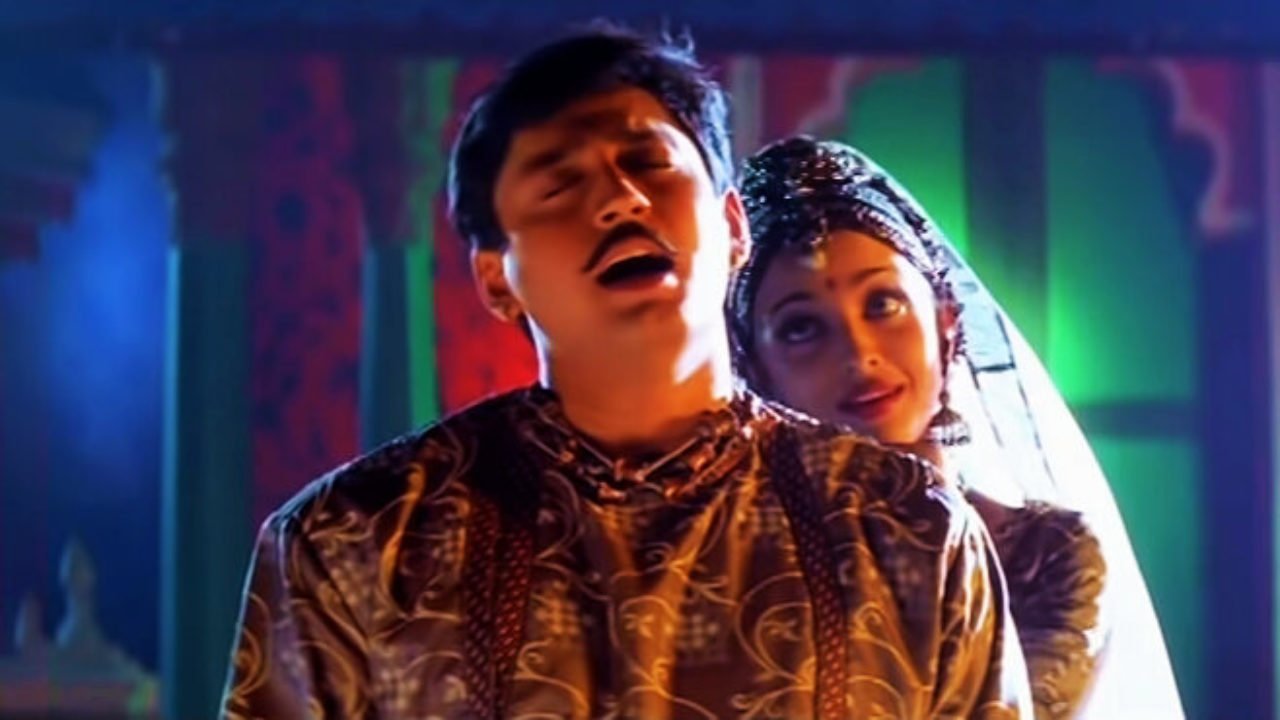
Similarly, in Andankaka kondakari, a song from Anniyan, “Sutta paal polae thegam thaandi unaku, Adhil paalaadai matum konjam vellaku,” is a line that is the Hero directly asking the heroine to remove her clothes.
In Kannum Kannum Kollaiyadithal, a song from Thiruda Thiruda, the lyrics goes like, “Azhagu pennin thaayaar endraal Aththai endrae artham artham.” While this line sounds genuine, it is problematic because there is a notion set that only beautiful women are worthy of a man’s love.
Songs that are offensive to women:
There is another category of songs in Tamil where the lyricist decides that he has all the right to spell out words of disrespect to women. Then there are some songs that directly talk about how some choices made by women are considered BAD or against social norms.
A song called Club le Mabbu Le calls out women who choose to wear modern clothes with lyrics that say, “Kaanchi Patta Vittuputtu, Kerchieepu Kattuthunga.” The song itself disses women who go to clubs and have drinks or wear short clothes. This particular line says that instead of Kanchi Silk sarees, girls wear Kerchiefs, referring to clothes that are revealing. The song establishes that women who choose to drink or smoke or go to clubs are disgusting. But, nowhere in the song does the singer talk about how men do this on a daily basis. This song not only dictates terms to how a woman should be, it also says that those terms are only applicable for women, just like the everyday rules of patriarchy.

In another song, Bittu Padam Di, the hero calls the Heroine his ‘BittuPadam’ which translates to porn in English. In the same song in a line he sings, “Thalukka vanthu silukka nee nightya than maatikinnu, pinju en nenju adhil mooda yethura,” which translates to the hero getting aroused after seeing the heroine in her night wear. These kinds of songs directly objectify women.
In songs like Evan De Unna Pethan from Vanam and Loosu Penne from Vallavan, the lyrics are written and sung in such a way that the hero basically swears at the heroine for something that she has done in the film. While these songs may have been accepted as peppy numbers, It’s very unfortunate that those involved with the song did not find it objectionable.
There is a song called Adida Avala from Mayakkam Enna which promotes violence against women in a funny way. With so many crimes being committed against women it is very very disheartening that the makers found it ‘funny’ to come up with something like this that encourages abuse of women.
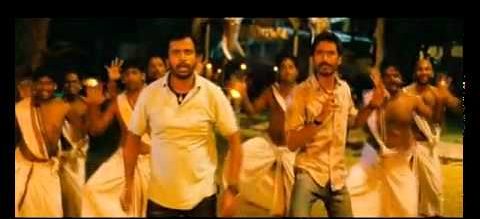
Songs that try to define and establish Gender Roles:
Now, there are some songs that seem very unproblematic and straightforward. But, even there, gender stereotyping and establishment of gender roles can be seen. For example, in the song Don’u Don’u Don’u from Maari, there is a chorus line that goes like, “I’m a loyal husband giving you royal treatment, and your daily shopping is guaranteed. You’re ma meesai maama, I’m your naughty mami giving you a lifetime service warranty.”
At first, this line seems really sweet and romantic. But, subtly, it establishes that men are the ones who are always responsible for finance and therefore he guarantees her shopping. Similarly, women are the home makers and therefore she guarantees him lifetime ‘service’.
Similarly, the line, “Sambala covera thorakavae maatenae atha mulusaa tharuvenae,” from the song Tamilselvi, from Remo, translates to the hero giving his full salary to the heroine. Now, if you have seen the movie, this is a song where the hero tries to impress the girl. It is like he sings this particular line because men are the breadwinners and women are attracted to men who let them spend as much as they want. Again, this kind of stereotyping is completely unnecessary in songs.
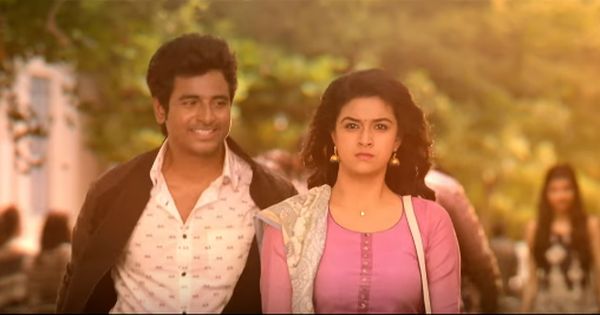
Songs that directly compare women with Objects:
In some cases, the lyricist didn’t want to work on spelling out things indirectly and has therefore directly compared the heroine to an object. The most famous example for this should be Mambhazham ah Mambazham from Pokkiri. The song calls the heroine a Mango and it goes on to list out the exact type of Mango she is.
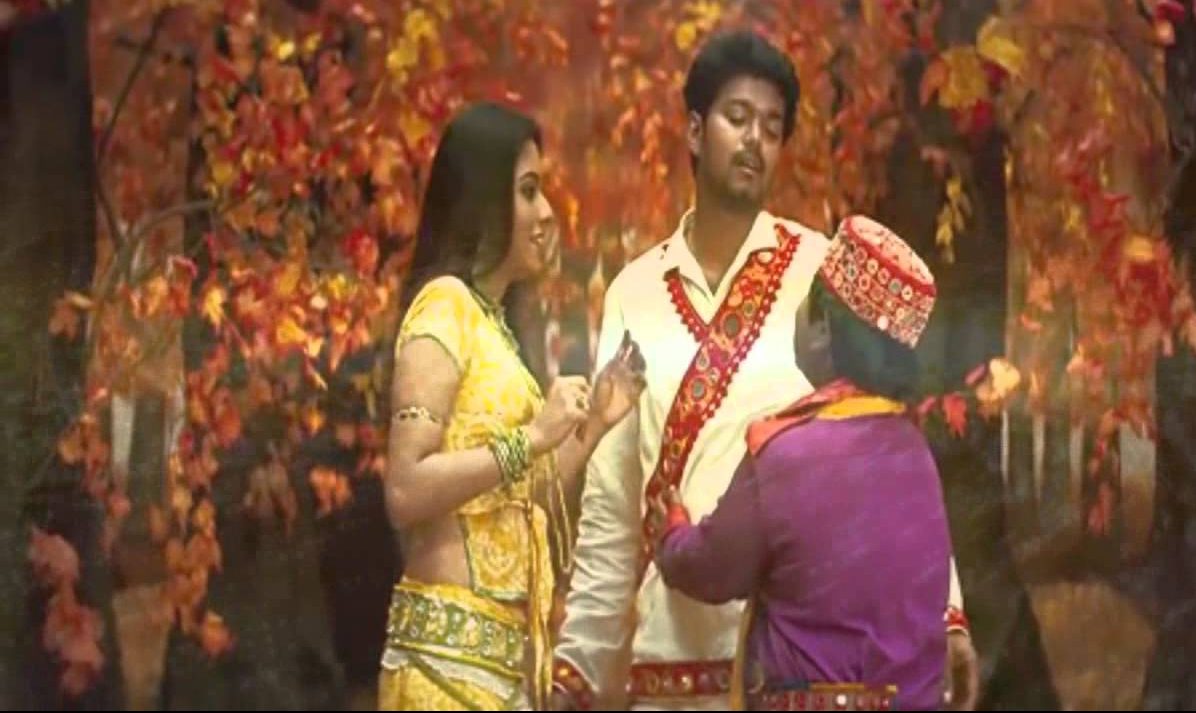
The above mentioned are just some of the many problematic songs that are currently on repeat on our playlists. There are plenty more in the Tamil language itself. Over the years, it has been accepted as okay for these lyrics to make it to the final song. Just like censorship for films, songs like ‘Bittu padam’ should also be censored and should never even reach the screens. The problem with these songs is that it normalises objectification of women, sexism, gender stereotyping and patriarchal norms. The bigger problem is, this is not being spoken about because we are often blissfully ignorant of what these songs actually mean!




